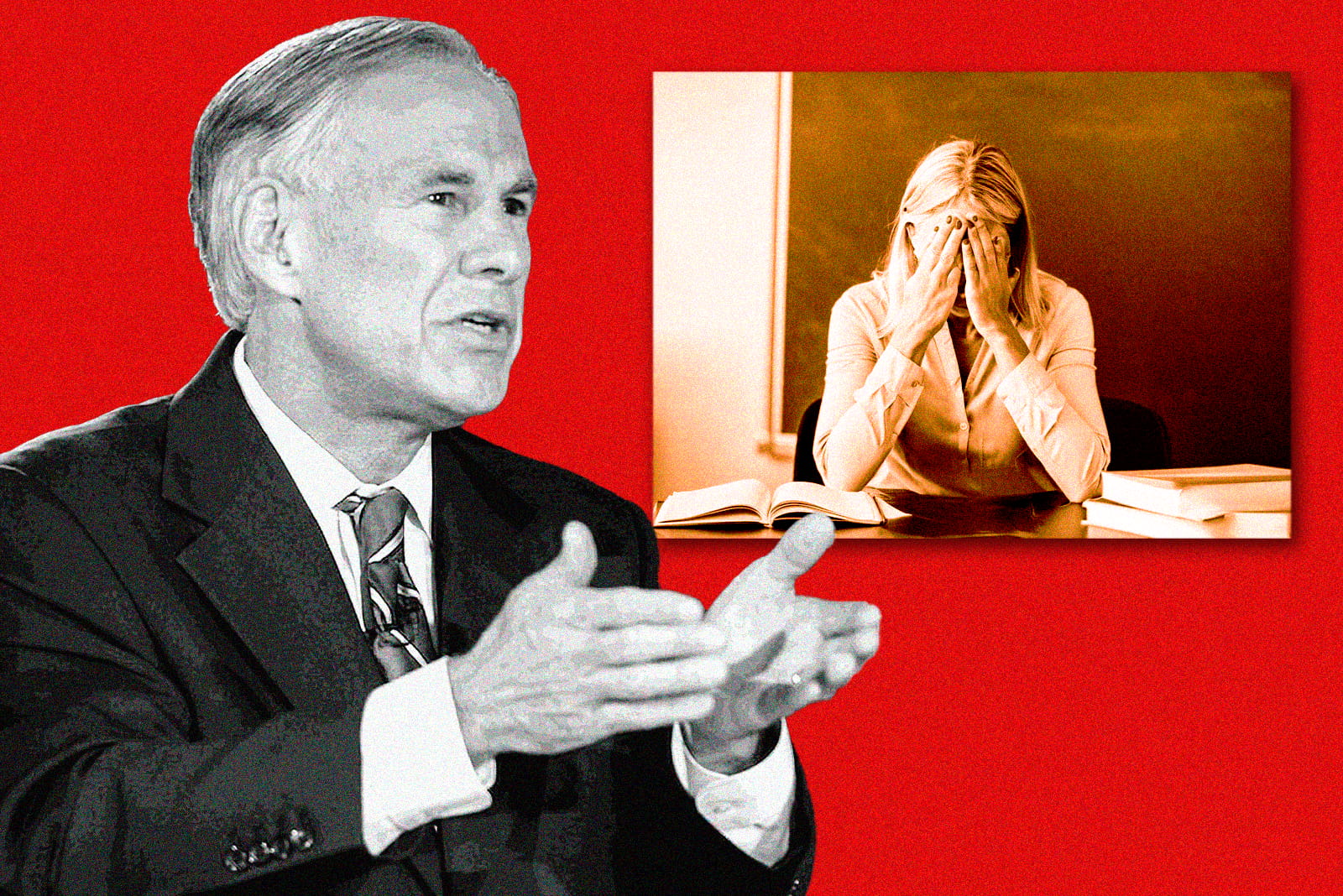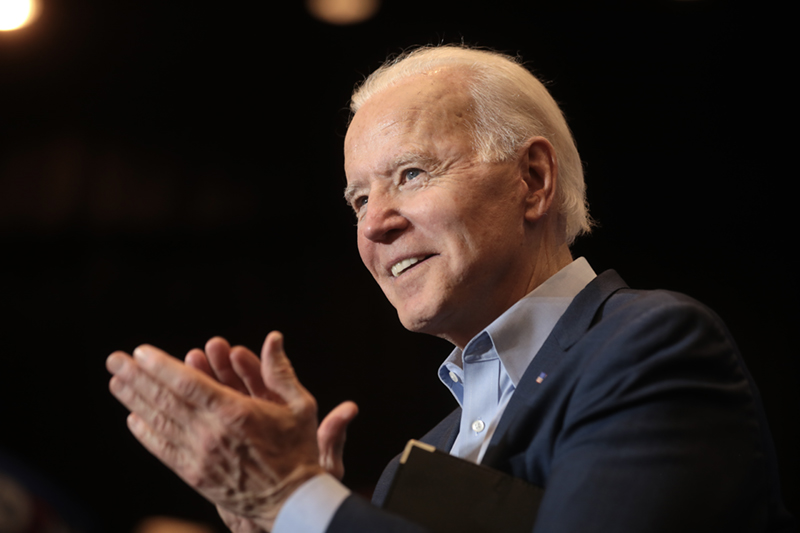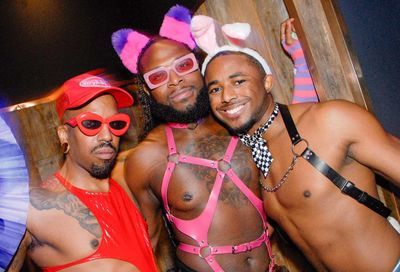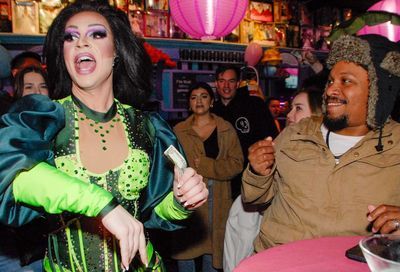Gay Republicans are flocking to Clinton, because Trump is a “loose cannon”
Could conservative voters defecting from Trump swing the election in Hillary Clinton's favor?

With three months until Election Day, Joe Swartz, a 32-year-old gay conservative, is doing the unthinkable: Supporting Hillary Clinton for president.
“I’m part of an organization called Republicans for Hillary. And we have been lambasted significantly by many Republicans about what terrible turncoats we are, how much we need to change our affiliation, and ‘My God, Trump is not great, but the alternative is Hillary,'” says Swartz. “And I say, ‘Exactly. The alternative is Hillary.’
“Imagine how low the bar of your candidates has to be,” he continues, “that people who have been on your side for 10, 20 years, people who have gone out and volunteered for Republican campaigns, are now voting for Hillary Clinton, someone they naturally loathed, because she has a modicum of normalcy.”
It’s a dramatic turnaround from 2015, when Swartz was confident Republicans would take back the White House. “We were gearing up to the idea that this is the end of eight years of Democratic rule,” he says. “It was really ours to lose.”
But then Donald Trump started winning primaries, and everything changed. After Trump had cemented his victory, Clinton became the only viable option for Swartz.
At one point, he had considered voting for Libertarian candidate Gary Johnson. And, technically, he could do so with a clear conscience, because Swartz resides in Democratic-leaning Maryland — a shoe-in to give its electoral votes to Clinton. But his focus has been on stopping Trump above all else, because Trump is thin-skinned, lacking in conservative principles, and someone who goes out of his way to offend various groups of people.
“For me, the focus is really on #NeverTrump,” says Swartz. “Anything and everything that must be done that keeps him out of office is necessary for us to do.”
Swartz could be written off as a disgruntled Republican who can’t accept the result of the primaries, but as Trump becomes the figurehead of the GOP, several prominent Republicans and fiscal conservatives have begun to distance themselves from the party. And that means weighing the possibility of supporting Clinton for the presidency.
On Monday, Sally Bradshaw, a top advisor to former Florida Gov. Jeb Bush and a lifelong Republican, announced she was officially switching her party affiliation to independent, and refusing to vote for Trump. Bradshaw told CNN in an email that, if the race was close in Florida, she would be casting her ballot for Clinton.
“I have worked to elect Republicans to national and statewide offices for the last 30 years. I have never voted for a Democrat for president, and I consider myself a conservative, a supporter of limited government, gun rights, free enterprise, equality of opportunity. I am pro-life. There are no other candidates who were serious contenders for the nomination that I would not have supported,” Bradshaw said.
“But,” she added, “we are at a crossroads and have nominated a total narcissist — a misogynist — a bigot. This is a time when country has to take priority over political parties. Donald Trump cannot be elected president.”
On Tuesday, Congressman Richard Hanna (R-N.Y.) became the first Republican member of Congress to come out in support of Clinton’s candidacy. Hanna’s defection was not completely shocking — he supports women’s access to abortion and birth control and was one of the first members of Congress from either party to support same-sex marriage in 2012. But the news that he was openly backing the opposite party’s candidate caused a firestorm in political circles.
“For me, it is not enough to simply denounce [Trump’s] comments: He is unfit to serve our party and cannot lead this country,” Hanna said in an op-ed in The Post-Standard. “Our response to the public’s anger and the need to rebuild requires complex solutions, experience, knowledge and balance. Not bumper sticker slogans that pander to our disappointment, fear and hate.”
Jimmy LaSalvia, the former co-founder of the LGBT conservative group GOProud, is another Hillary convert. What’s motivating him and many others to look at Clinton is the realization that the Republican Party is based on an “untenable coalition” of interest groups that have hamstrung party leaders, leaving the GOP vulnerable in national elections.
“For years, many of us were unhappy Republicans,” he says. “The culturally modern conservatives who embrace our multicultural reality have been frustrated with the Republican Party. You’d go to Republican events, and there was always this push-and-pull between the culturally modern and the intolerant wing. In recent years, it’s just gotten worse. And this Trump candidacy is the climax of that.”
Trump’s actions on the campaign trail and his vision for the GOP have forced LaSalvia to “shed his partisan loyalty” and leave the Republican Party. It’s made the unthinkable — voting for Hillary Clinton — a reality.
“Hillary Clinton has been the enemy my entire adult life,” he says. “I never thought I’d vote for a Clinton, but there’s just no choice here. And even for people who aren’t ready to admit they’re for Hillary, more and more people will start to consider her, even if they’d never considered voting Democrat before.”
If LaSalvia is correct, and many other Republicans are considering supporting Clinton, why haven’t more denounced Trump or publicly refused to support him? He attributes it to the nature of politics and self-preservation.
“In our political system, being a ‘team player’ for your party is the most important thing,” LaSalvia says. “It’s why our system is broken, because people have been putting their party above their country. When being a team player is the number-one priority above policy or what’s best for the country, then demonstrating disloyalty to the ‘team’ is the hardest to do.
“For many people, especially people who work in politics and public affairs, that could pose a risk to their careers,” he adds. “That’s not a small thing…. And it’s not just risking backlash on Facebook.”
Another Republican risking their political career is Yale Scott, a George W. Bush appointee who worked in the White House and the State Department. He’s as Republican as they come, something all but ensured by growing up in Oklahoma. But now, the 36-year-old is supporting Clinton, fundraising for her, and volunteering at campaign events.
“I definitely still align myself with a strong faith and being fiscally conservative, but this election is so important because Donald Trump is dangerous for our country,” says Scott. “I feel like he’s a loose cannon. And he’s all over the map: One day, he’ll say something, and the next day, he’ll totally contradict himself, but spin it politically.”
However, Scott insists he chose to support Clinton long before Trump won the GOP nomination. He’s excited about her selection of Virginia Sen. Tim Kaine, who once served as a missionary to Honduras, as a running mate — particularly because he’s able to reclaim religious voters and his down-to-earth nature helps humanize the Clinton campaign. On a personal note, he also supports Clinton’s promise to appoint Supreme Court justices who will uphold the court’s recent marriage equality decisions — a stark contrast to Trump, who vowed to appoint judges who would overturn them.
“I have a lot of family and friends who say, ‘Yeah, but that will never happen,'” says Scott, who married his partner last September. “And I say, ‘Actually, it could.'”
Both Scott and LaSalvia believe the election will come down to politically moderate women, even some who identify primarily as Republicans. Many may tell pollsters, and even their husbands, that they are voting against Clinton, but will do the opposite once inside the privacy of the voting booth, Scott says. But he worries that their votes may be offset by an equal number of well-educated or well-off voters, particularly in large urban areas, who will opt for Trump.
“I think it’s two-sided,” says Scott. “There’s a lot of people who say they aren’t going to support Trump. They’ll just say they aren’t going to vote at all, or they’re going to write in a candidate. But at the end of the day, they’re going to vote for Trump. And that’s what scares me.”
5 Facts in the Wake of the DNC
7
The number of national surveys (all of them) conducted after the convention showing Clinton ahead of Trump
68.4%
Hillary Clinton’s chances of winning the election, based on FiveThirtyEight’s model combining various polls (at the time of writing)
31.6%
Trump’s chances of winning — an 18.5% drop since July 30
2
The number of Republicans Trump has refused to endorse in their reelection races (Paul Ryan and John McCain)
1
The number of Republican congresspeople who have announced they will vote for Clinton in November (Rep. Richard Hanna)
Support Metro Weekly’s Journalism
These are challenging times for news organizations. And yet it’s crucial we stay active and provide vital resources and information to both our local readers and the world. So won’t you please take a moment and consider supporting Metro Weekly with a membership? For as little as $5 a month, you can help ensure Metro Weekly magazine and MetroWeekly.com remain free, viable resources as we provide the best, most diverse, culturally-resonant LGBTQ coverage in both the D.C. region and around the world. Memberships come with exclusive perks and discounts, your own personal digital delivery of each week’s magazine (and an archive), access to our Member's Lounge when it launches this fall, and exclusive members-only items like Metro Weekly Membership Mugs and Tote Bags! Check out all our membership levels here and please join us today!
























